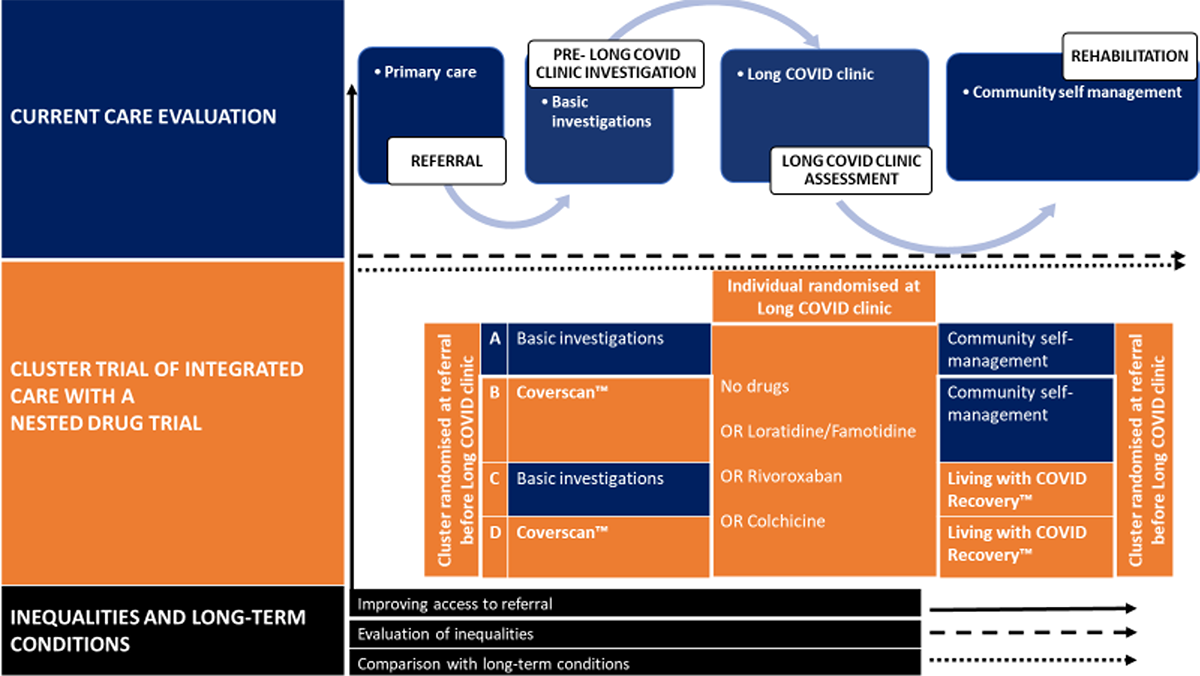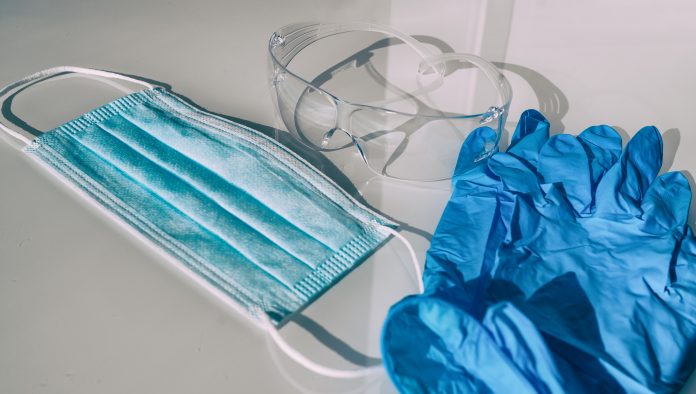The STIMULATE Long Covid study will assess how patients with Long Covid progress and recover, explore innovative treatment options and investigates health inequalities compared with other long-term conditions
In the UK, nearly a million people are reporting Long Covid for at least 12 weeks; half of them for over one year. Patients and innovation must be front and centre of strategies to tackle Long Covid.
The National Institute of Health Research-funded STIMULATE-ICP (Symptoms, Trajectory, Inequalities and Management: Understanding Long-COVID to Address and Trans- form Existing Integrated Care Path- ways) study is led by Amitava Banerjee, Professor of Clinical Data Science and Consultant Cardiologist at University College London.
A team of over 60 individuals, from hospitals and academia to patients and industry are working in three workstreams. First, they are looking at how people with Long Covid progress and recover, and how healthcare resources, such as investigations and rehabilitation are being used.
Second, in a trial, they are evaluating novel care pathways, involving a multi-organ MRI scan and a digitally enhanced rehabilitation programme, as well as drugs which can be potentially repurposed to treat Long Covid.
The trial opens in late March in sites around the UK, aiming to recruit 4500 individuals with Long Covid. Third, they will investigate health inequalities and compare them with other long-term conditions.
Inequalities in Long Covid recognition, care and support
Nisreen Alwan is Associate Professor in Public Health at the University of Southampton and Honorary Consultant in Public Health at University Hospital Southampton NHS Foundation Trust. Within STIMULATE-ICP, she is investigating inequalities in Long Covid recognition, care and support.
Her team wants to find out if the characteristics of patient groups who are accessing Long Covid care are reflective of the expected need in the population. Along with Dr Marija Pantelic (Lecturer in Public Health, Brighton and Sussex Medical School), she is exploring the extent of stigma and perceived discrimination that people with Long Covid might be experiencing.
With a community advisory board of people with lived experience of Long Covid, the team is also co-designing a ‘case finding’ pilot, to find people who are likely to be experiencing Long Covid but have neither been formally diagnosed nor accessed health services for it. This pilot will inform service configuration and healthcare professional training. “We want to explore the barriers that prevent them from obtaining help and discuss personalised pathways of care with them,” says Dr Alwan.

Long Covid sufferers face stigma
Jasmine Hayer was a manager and life coach in London and training to be a yoga teacher. Now, she’s a Long Covid patient, advocate, blogger and writer, still recovering since contracting Covid-19 in March 2020. She’s also a patient advisor on STIMULATE-ICP, investigating stigma and inequalities that Long Covid sufferers face, and an ambassador of covid:aid.
Jasmine describes the “battle to be believed”: “There was no help for Long Covid sufferers like myself from the first wave – no doctor was ‘officially told’ about Long Covid then but we certainly know a lot more now, yet alarmingly, many are still experiencing gaslighting, stigma and not able to receive treatment.”
She adds, “I hope that the STIMULATE- ICP trial results will impact the medical system to distribute this knowledge widely, based on large clinical evidence.” Through blogging, media work and collating short stories from 201 “long haulers” in a nationwide project, ‘The Hidden Voices of Long Covid’, she continues to raise aware- ness about the lived experience of Long Covid.
She is hopeful for the STIMULATE-ICP team’s approach: “They recognise and support that putting together the pieces of the Long Covid puzzle requires listening to the evidence and that’s us, patients – especially when the ‘medical evidence’ as we know it, doesn’t fit the rulebook.”
Using MRI imaging for Long Covid patients
Trained as a consultant in general medicine, Rajarshi Banerjee is CEO of Perspectum, a medical software company born out of the University of Oxford when he discovered that organ health could be seen and measured, removing the dependencies on biopsies.
When the pandemic struck, he was asked if some of his 200 employees could be re-tasked to look at AI for imaging COVID. There was not much need for this, so instead, he focused on recovery from COVID. “It rapidly became clear that many patients, even with mild acute infection, had prolonged illness, but the first challenge was getting the medical community to recognise this, and barriers still remain,” he recalls.
Dr Banerjee led the Coverscan study which showed high rates of multi- organ impairment based on MRI in people with Long Covid. “It is safe, uses no radiation, and is, most importantly, standardised, like blood tests, so a result from Nottingham can be interpreted by a doctor from Derby, or London,” adds Dr Banerjee. MRI has traditionally been seen as expensive, but is, in fact, cheaper than many blood tests, and more cost-effective than, for example, liver biopsy”.
STIMULATE-ICP will address how we manage patients with Long Covid in a scalable way across the whole UK, not just in London. “This may well serve as a blueprint for other countries too.”
Regular STIMULATE-ICP study updates will be available at https://www.stimulate-icp.org/
Please note: This is a commercial profile











